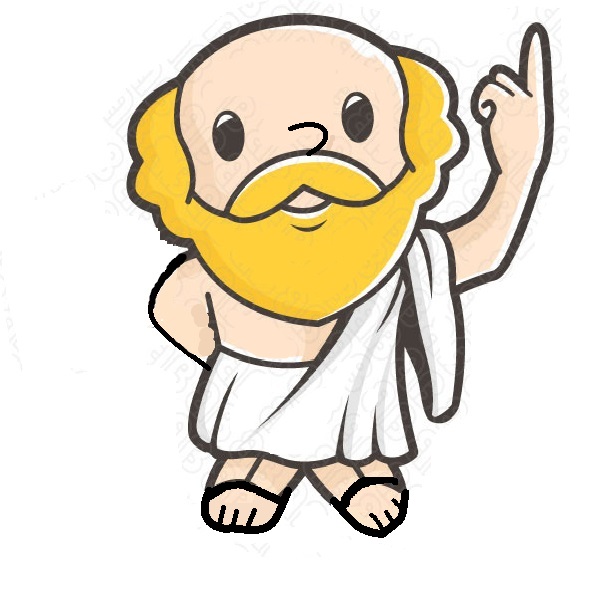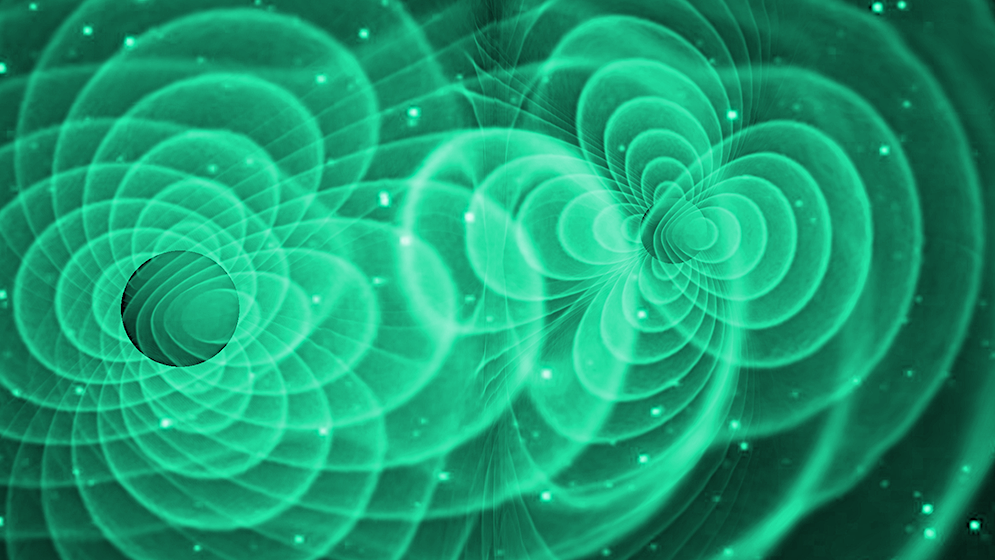Perceive thy self
Okay, we’re trying to act like objective scientists here. We’re looking at the subject dispassionately, even if the subject in question is us. Good luck.
Hoffman has presented us with a hypothesis. If we agree with his premises and accept the evidence, if he has addressed all challenges in a satisfactory manner, then we must accept his conclusion : We are not truth detectors, we are self-protectors. We haven’t been blessed with the ability to accurately perceive objective reality, but rather the imperative to look out for number one (ie. ourselves and our progeny).
Of course this is hard to admit, what I see feels so real to me. How can it be a sort of delusion based on self-interest?
But we know that feelings or beliefs can be mistaken. That our eyes can be fooled.
Evolutionary biology asserts that perception is shaped by the needs of the observer. Experience is species-specific. Spiders experience a world of wobbling webs. Tiny tasty mammals experience a world of fear and hunger.
Theoretical Physics seems to agree : measurement, or perception does not reveal some fundamental reality, but rather a particular relationship between the observer and whatever is being observed.
So what are we to do with this information? Hoffman is obviously hoping to find a way to access the truth hiding behind conscious experience. This could prove tricky, because ultimately, like everyone else, that’s all he has to work with.
Taken to its extreme, his theory might be self-defeating. If we can’t trust our brains at all, we might as well give up the scientific endeavor altogether.
But maybe that’s not what he’s saying. He does rely on certain specific scientific findings to support his claims. Maybe math and logic will help him out of the corner he seems to have painted himself into.
Unfortunately, our understanding of math and logic is also based on experience. Philosophers, over the course of history came to describe logical axioms through argument and demonstration. And all philosophers were humans using their brains and their senses (as far as we can tell).
Anyway, that’s Hoffman’s problem, not ours.
We just want to know if this makes any practical difference in our daily lives. Whether an understanding of our human condition can help reduce harm. Does a more complete picture of the processes of being human, as opposed to being blindly driven by those processes, help in any way?

The proposed model is that the “reality” we are experiencing is a projection created by our brain. And that our brain and its projections are conditioned by its history and its environment – meaning it has been culturally, psychologically and biologically conditioned over millennia to act in certain ways. If you notice a kind of circularity in this model, bravo, it’s definitely there – we’ll skip past that for the moment – suffice to say that circularity of reasoning or evidence is a fallacy.
None of this means that there isn’t an actual reality that exists when I’m not looking, just that we don’t perceive it accurately. The issue being that we naturally mistake what we experience with truth. And that we develop philosophies or worldviews based on these delusions. The problem being that we often act upon these worldviews – sometimes violently so.
Let’s be clear : we are not trying to uncover the mysteries of Spacetime. We aren’t trying to become one with God, or get a glimpse of absolute truth (whatever that means). We’re just looking at what it’s like to be human. We’re looking at our subjective experience and the consequences of acting out on this first person perspective of what we call reality.
What words mean
It might be helpful to define these 2 words we keep using : Reality & Experience.
What we usually mean by the word Reality is : That which is truly, actually taking place. A dictionary might define it as : A quality or state that has an objective independent existence. Or the state of things as they are, rather than as they are imagined to be.
What we mean by Experience is : What it’s like to be me in my environment. Typically defined as : The process or act of perceiving events.
When we describe the relationship between reality and experience theoretically, we usually say : Reality affects Experience.
This is most certainly true, it’s a reasonable model from the perspective of an outside observer with a “god’s eye” view of the whole situation.
But in a practical sense, from my first-person point of view, the relationship actually taking place is totally different.
For me, Experience and Reality are the same thing. It feels very much that what I am seeing, hearing, knowing etc is really real – that it has an independent objective existence.
I might not define Reality as “whatever I’m experiencing”, but I do feel and behave as if I am directly experiencing actual Reality.
This feeling, that we are perceiving an objective truth, is of course useful. It means that we take it seriously, and are impelled to act upon it. I’ll jump higher and move faster if I think that I’ve accidently stepped on a real snake.
It’s a powerful self-reinforcing relationship, I see a snake, I react, and I survive to fight another day. It’s in my genes, my ancestors have been reinforcing this relationship for millenia.
Some scientist’s argument that my world is some kind of weird trick I’m playing on myself just doesn’t cut the mustard.
So what if I’m not seeing an exact representation of reality? What matters is that it does actually represent something real. Maybe we are reacting to our own symbolic projections, but who cares, as long as our projections symbolize stuff that really does exist.
Let’s dive down this rabbit hole for a minute. Let’s look at this conviction that our subjective experience has some sort of existence in our absence. What do we mean when we say that our model of reality is an indication of something that exists outside of our brain. For example, are my ideas of chairs, of time, or of my sandwich, merely mental constructs, or do they point to independent entities or processes that actually exist “out there”?
Here’s a little thought experiment : Assume, for the sake of argument, that Time is part of fundamental reality, that it has an objective, mind-independent existence. And that, in actual fact, Time is the dissonance caused by differences in the fluidity of gravitational geometry.

You grok? I don’t personally understand what that means. It’s just something I heard a Physicist say once, probably Carlo Rovelli. I remember he was trying to persuade us that the reason we fall down so often is because time moves faster up around our head than it does down at our feet (because our feet are slightly closer to the planet).
Anyway, it doesn’t matter. We’re just accepting what some nutcase professor, a specialist in their field, is telling us, for the sake of this hypothetical : Time is a kind of disturbance that happens when gravity forces space to rub up against itself (or something something).
So does my experience of Time point to that?
We can break this question down to make it easier : Does my experience of Time exist in my absence? The answer is no – I cannot experience anything if I don’t exist.
Does my experience, or concept of Time – what I mean by “Time” – have anything to do with spatial discordance or gravity?
Not at first glance. What I mean by Time is what it feels like to me…
Theoretically, we could argue that what I’m feeling and the actual phenomenon are linked via a causal chain. Phenomenon x somehow leads to experience y. That sounds completely rational and legit.
Unfortunately, this does not necessarily follow. For example, I might mistake distant fireworks for a thunderstorm. Once when visiting New Zealand, I was astonished when the washing machine next to me suddenly started up automatically – when actually I was living through my first ever earthquake. It’s possible to experience something other than what’s actually happening.
It’s also possible for a specific situation to provoke completely contradictory experiences. Different people (not to mention other species) can have a different experience of the same phenomenon – and depending on my frame of mind, so might I.
We feel strongly that our images of the world are always reflections of actual stuff out there. But all we can say for sure is that they are expressions of our own experiences. They are a kind of tautology, reflections of themselves.
At best, it’s always an understanding of the world as it relates to me and my biases.
Motive & reaction
Perception comes before interpretation and subjective impressions. Something initially causes our sense organs to register and transfer data to the brain, which then reacts and creates our experience.
Perception or sensation also came first in our evolutionary history. The first simple life forms, that managed to survive and multiply, were able to do so in part thanks to their ability to discriminate. Our ancestors were able to sense and react to their surroundings. This discrimination and reaction was pretty simple. Stuff that was beneficial would result in a movement of attraction; and stuff that was dangerous would be avoided. Organisms that did not react or that did the opposite, like avoiding the advantageous and moving towards danger, did not do so well.
In the early days, our ancestors were doing this without brains – brains didn’t exist yet. In the case of early proto-life forms, reaction wasn’t a question of volition or intent. Survival, or maintaining integrity as an organism, was more to do with physical and chemical interactions with their environment.
For example, an organism with a cell wall made out of oils might naturally tend to adhere to other oily compounds. It might tend to hang out in the shade, away from the dangerous sunlight, just due to how it’s affected by the heat, and because it’s being carried around by water.

Volition, and deliberate action under one’s own effort, would come later as organisms developed tiny legs and antennae (or weird equivalent appendages). But the initial success and dynamics of discriminating between good and bad would continue. Culminating in the present day with creatures like the mantis shrimp with its amazing eyes and claws but hardly any brain to speak of, and us with our huge brains.
Okay, I’ve gone on way too long, and dived down too many rabbit holes. I was hoping we could look at how our inquiry into all this is in any way helpful. But we can try again in the next chapters – where we’ll look in detail at the intersection of Neurology and the philosophy of Idealism (which is very much where Dr. Hoffman stands).
We’ll just end this chapter by pretending to be a mantis shrimp.
The mantis shrimp has the best eyes in the world. And the fastest, most powerful punch (pound for pound). But a tiny, tiny brain, just a bunch of nerve endings. Its eyes have up to 16 photoreceptors, compared to our 3. They can tune their eyes to detect UV and polarized light, and are the only creatures we know of that can detect circularly polarized light waves.
All in order to know when to punch something really hard (eg. food or foe) and when to seduce a female (by making its shell do a sexy light show).
But these amazing compound eyes and the punch drunk behavior is not accompanied by a correspondingly amazing visual or conceptual experience. Remember, it’s the brain that produces the visual experience – the ability to see amazing colors for example, needs a more sophisticated brain.
The mantis shrimp gets what it needs by responding directly to a large array of data inputs, without the need for any spectacularly engaging visuals or ideas about what’s happening.

We on the other hand, engage with each other through our ideas, and how we identify with these ideas. Concepts of me, you, them, time, honor, love, money etc mean that we can be more cunning and crafty in order to get what we want. Our reality offers us a larger array of tactics and motives. To punch or not to punch is not our only option – we can hold back from punching, punch later at a more appropriate date, or persuade someone else to do the punching.

Leave a Reply